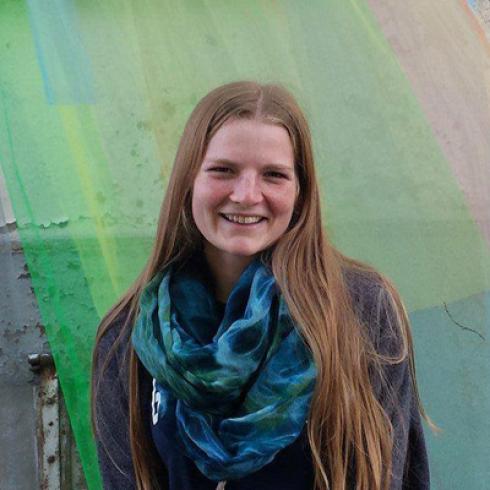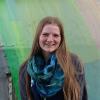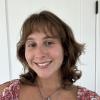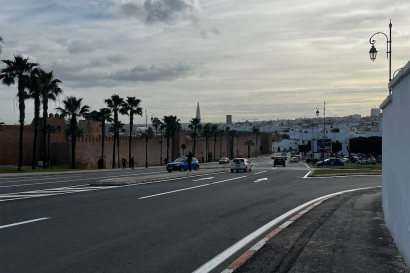Besides being interested in North Africa, I chose to study in Morocco because I figured it would be a place where I could work on Arabic while also putting my French to use. What I did not expect was the complicated and somewhat overwhelming reality of being caught between multiple languages.
Arabic is the official language of Morocco and the variety spoken here is Darija. The Modern Standard Arabic, or Fusha, that I have studied is used here as throughout the Arab world in formal contexts such as education, administration, and the media. Then there’s French, spoken by many Moroccans and used in many of the same contexts as Fusha as well as in contexts that cater to European tourists or expats. Spanish takes on some of this role in the north near Spain, and English is also emerging as a popular second language. This is not to mention Amazigh (or Berber), the language of the indigenous population of Morocco, which is an official language alongside Arabic.
Jumping into this linguistic whirlwind is both exhilarating and exhausting. At the IES Abroad center, I take a Fusha class, a Darija class, a class in French, and a class in English. In one day, I attempt to navigate three to four different languages.
At home I try to speak to my host family in Arabic as much as I can. But the question is, do I use Fusha or Darija? Usually I end up speaking in Fusha, inconsistently mixing in the limited Darija I’ve learned. When I don’t know how to say something in Arabic, or when I want to be sure I don’t miscommunicate, I revert to French. My family speaks back to me in a mixture of French, Fusha, and occasionally Darija, but among themselves it’s rapid-fire Darija all the way. Most of the time I can’t understand when they speak to each other.
Away from home and the center, I am never quite sure what language I should speak. As a white American woman, I often get “Bonjour” or even “Hello” from the get-go. I try to use Arabic when I can, and so far my Darija has enabled me to order tea in a café and communicate with taxi drivers. Speaking Fusha sometimes feels strange because it’s an acquired dialect/second language for Arabic speakers themselves, and my Fusha classes have prepared me more to talk about things like international relations than everyday life. While I feel comfortable expressing myself in French, I don’t want to assume that everyone I meet in Morocco speaks it. French was after all a language imposed through colonialism.
While out to eat at a restaurant with friends, the waiter saw how clearly American we were and spoke to us in English from the start. We however wanted to practice our various languages. One of us would attempt to order in French, another in Darija, another sticking to English, dropping in different words that we knew and switching back and forth when we got stuck. I felt rather ridiculous not knowing what language to use, but it is an interesting new linguistic experience to have multiple options.

Rebekah Grafton
I am a long-time bibliophile, choir nerd, and language lover who isn't really "from" anywhere. The closest thing I have to a hometown is Ambler, Pennsylvania, where I lived throughout middle and high school, but I also lived in England and Egypt as a child, and my parents now live in Connecticut I now go to college in Washington DC!








